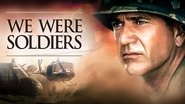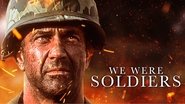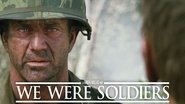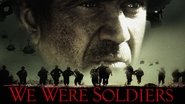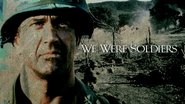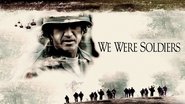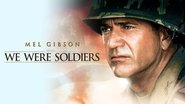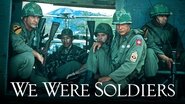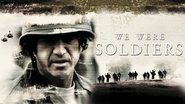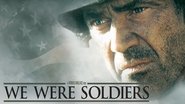Marthian80
I was curious about this movie because it's one of the more "recent" Vietnam movies so I wanted to see if it brought anything new to the table that the classic movies did not. The movie opens with a French patrol in Vietnam in 1954, the final year of the First Indochina war. The French patrol is overrun by the Viet Minh forces and the commander order to "kill all they send, and they will stop coming". We fast forward 11 years when the United States is fighting the Vietnam War. Lieutenant Colonel Hal Moore (Mel Gibson) arrives with his family and is very dedicated to training his troops in preparation to be sent to battle. He will be leading a newly created air cavalry unit (flying troops and supplies in with helicopters) into the Ia Drang Valley. Moore only has 395 men at his disposal and soon learn that the enemy has much more men. Vastly outnumbered, will the astounding leadership qualities and stubborn determination of Moore be enough to survive the coming onslaught?Overall I enjoyed this movie, but not tremendously. The war action was very good, the acting and portrayal of the characters was decent and at times it gave me the feeling of being in the heat of the battle. But it started really slow, the first 40 minutes were not very interesting and although it did setup some story arcs, overall it could be much shorter or be made more exciting. In my opinion they tried to hard with focusing on the families of the soldiers. I understand that they wanted to show how the women left behind would react to the bad news but it didn't work for me, I think they should have stayed with the battle the whole movie. And where most classic Vietnam movies focus on the insanity of war and the dehumanization, this movie sometimes looks like a commercial to join the army. There were a bit to many "I'm glad I died for my country" moments and it lacked emotional torment of the characters. On the other hand they did a fine job showing the Vietnam troops as real people and not as nameless monsters. Overall it is a decent movie but it doesn't do anything new and doesn't hold a candle to the classic Vietnam movies like Apocalypse Now, Platoon and Full Metal Jacket.
tomgillespie2002
After Steven Spielberg's Saving Private Ryan reinvented the way the brutality and chaos of war was depicted on the cinema screen back in 1998, Hollywood went slightly nuts for all things World War II. At one point, it felt as though we were getting one every other week, and fatigue naturally kicked in, especially since none measured up to Spielberg's visual masterpiece (if very flawed film), other than Terrence Malick's superior The Thin Red Line released the same year. By 2002, attention was moving towards the Vietnam conflict, an unjust and borderline psychotic war that resulting in heavy losses on all sides. It was a favourite topic for many filmmakers in the 1980's, and produced a few greats, but interest seemed to wane as we moved into the 90's. In 2002, We Were Soldiers was supposed to rekindle our fascination with Vietnam, but has since faded into a long list of half-forgotten war movies.Based on the book We Were Soldiers Once... and Young by Hal Moore and Joseph L. Galloway, Randall Wallace's film attempts to cover the Battle of Ia Drang from three perspectives: the 400 American men fighting at the front, the 4,000 Vietnamese troops they're up against, and the wives at home fearing the arrival of a taxi cab bringing them unwanted news. The bulk of the action follows Moore (Mel Gibson), then a lieutenant colonel, through training his troops and eventually onto the front line, where intelligence is so sparse that they have no idea what they are up against. It turns out that the Americans are greatly outnumbered, and so begins one of the bloodiest battles of the entire war. He is later joined by reporter Galloway (Barry Pepper), who captured much of the conflict on camera as well as picking up a rifle himself. At home, Moore's wife Julie (Madeleine Stowe) intercepts all the letters informing the devastated wives of their loss to hand-deliver them herself.We Were Soldiers feels like more of a complete overview on the battle thanks to this unique perspective, while the action is some of the toughest and most unflinching in the genre. Perhaps down to its more observational approach - apparently the events take place almost exactly how it played out in real life - the film often gets criticised and labelled as a pro-war movie. I don't feel that what we see is glamorising or promoting war in any way. On the contrary, it refuses to really to take a stand, and this is what makes Wallace's movie far less interesting than it should be. It all boils down to 'war is Hell', but most people know this already whether they have experienced combat or not. The battle scenes are intense, horrifying and well-staged, and demand to be admired from a technical point of view. But it's nothing we haven't seen before. Despite Chris Klein's failure to really convince as a human, We Were Soldiers features many impressive performances, most notably by Sam Elliott as Sgt. Major Plumley, a gruff Sam Elliott-type who mows down his enemies with a revolver while the rest of his men pack automatics, and Gibson himself, who helps tug on the heartstrings during quiet moments of reflection.
dbrownridge
If you have watched a lot of war movies, you'll know America has pumped out more than any nation, hence you've already had a taste of U.S. war propaganda: ie. a classic example is seen in this movie where every U.S. soldier who sticks their head up an inch is shot, EXCEPT for the commander who can strut around upright or stand stock still without even a wound. This represents American bravery, more accurately 'guts' or 'balls'. Another classic example goes as far back as the old Westerns, but it is such a well-loved cliché they use it ad infinitum - it is the scene where the enemy hurl themselves headlong into a slaughter while the Yanks hunker down and mow them down like wheat before a rainstorm. Yes, I know sometimes you have to rush a position but usually you'll soften it up first with grenades or mortars. The VC in this movie have about 5 grenades and no mortars, apparently. I like how the 1st platoon is pinned down with like 5 guys left and the VC just keep rushing in again and again - NOT throwing in a single grenade which would have finished it right there. These are just two of many examples. Good grief. I've heard of suspension of disbelief but this movie invokes suspension of total brain function. The first time I saw it I couldn't finish it. It's been a decade and I tried again today - desperate for movies here in China. Again, I couldn't cut it. Two-thirds through I pulled the pin. RIP you piece of crap. Even an old John Wayne movie is more real.
grantss
Great battle scenes but pretty weak in many other areas.A telling of the 1st Battalion, 7 Cavalry Regiment, 1st Calvary Division's battle against overwhelming odds in the La Drang valley of Vietnam in 1965. Seen through the eyes of the battalion's commander, Lt. Col. Hal Moore (played by Mel Gibson), we see him take command of the battalion and its preparations to go into Vietnam. We also see how the French had, years earlier, been defeated in the same area. The battle was to be the first major engagement between US and NVA forces in Vietnam and showed the use of helicopters as mobility providers and assault support aircraft.Very gritty battle scenes. Captures well the chaos and confusion of battle, plus the desperation and terror involved when things aren't going well. Mostly accurate, by most accounts, though some minor liberties are taken for dramatic effect.The problem, however, lies with just about everything else. Dialogue is quite over-the-top, as if just about everybody is played by John Wayne. Many simple passages of dialogue are turned into speeches, and cliché-filled speeches at that.In keeping with the cheesy dialogue, some pretty heavy-handed, overly gung ho scenes too. Once again, reminded me of a John Wayne movie.Overall, quite entertaining, just uneven because of the mix of gritty battle scenes and cheesy dialogue and other scenes.

